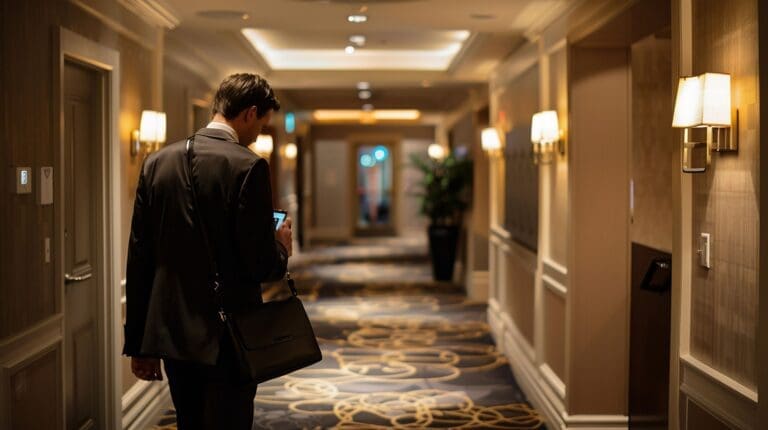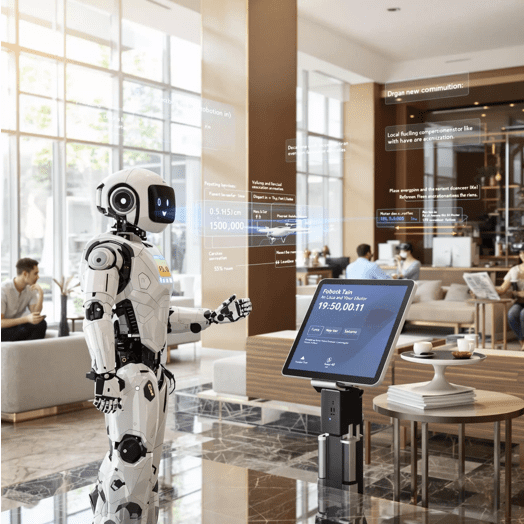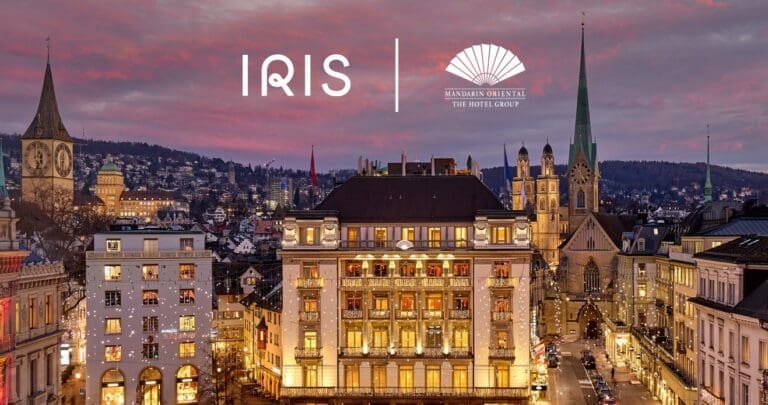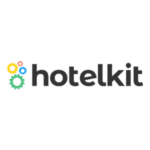 For hotels that want to stand out in a competitive market, using AI (Artificial Intelligence) is no longer a luxury—it’s a necessity.
For hotels that want to stand out in a competitive market, using AI (Artificial Intelligence) is no longer a luxury—it’s a necessity.
Hospitality marketing expert, Michael Kosmas, used generative AI to improve the guest experience and drive revenue growth for a global luxury hotel brand in three major city locations. Here’s how he did it.
The challenge: Managing customer feedback
Three hotels were struggling to keep up with guest feedback. They weren’t able to respond quickly to concerns, especially about the food and drink services.
With Michael’s help, here’s what they discovered:
- Over 60% of complaints were about food and beverage quality, with many guests saying it wasn’t worth the price.
- More than half of these complaints came from Google reviews.
- One location saw over 35% of complaints about the hotel’s design.
- Over 79% of the complaints about hotel locations were focused on one specific property.
The strategy: Turning feedback into action
Michael used his expertise in generative AI to gather and organize all guest feedback, turning unstructured, hard-to-read data into clear information that the hotel staff could act on. Here’s the four-step process he followed, with the ultimate goal of increasing revenue for the brand:
1. Mapping the guest journey
After a brief needs assessment, Michael created a clear, one-page customer journey map plotting a guest’s stay from booking to check-out, and highlighting all the key moments where guests and staff connect, whether in person or online.
This map was designed to help everyone at the hotels understand how and when to improve the guest experience, and inform hotel leadership of areas in need of improvement, allowing them to decide where to invest resources.
2. Gathering data
The next step was to collect all the guest reviews and feedback in one place, in real time. This included online reviews from sites like Google, Meta, TripAdvisor, and Booking.com, along with internal hotel information. Personal details were removed to protect privacy.
3. Organizing the feedback
Using affordable AI tools, Michael analyzed and sorted the feedback to highlight the most important issues.
4. Taking action
Michael put together an AI Consumer Sentiment Survey with a clear 360° view of guest feedback to allow the hotels to start making changes immediately.
The hotels used the insights to lower operational costs and improve customer satisfaction, in turn boosting revenue. Since results were tracked in real time, they could see the impact of their changes right away.
The results: Happier guests, more loyal customers
Thanks to the actionable insights from the AI Consumer Sentiment Survey, hotel management made several changes, including improving transportation options to their theme park, adjusting their food and drink offerings, updating menu options, and enhancing security at one urban location to help guests feel safer. These improvements led to happier guests and increased revenue.
The metrics
By tracking specific metrics across all three locations, Michael and the hotel teams could clearly see the impact of these upgrades on guest satisfaction, operational efficiency, and revenue generation.
1. Addressing security needs at the urban property
The hotel introduced a 24/7 “Virtual Agent” powered by AI, allowing guests to connect directly with staff or live agents. Guests simply had to say, “speak to a representative” or “speak to staff” for instant assistance. Whether through voice, SMS, or WhatsApp, the Virtual Agent engages in natural language conversation to answer questions, highlight security checkpoints, and guide guests on safety protocols.
This Virtual Agent eliminated wait times, responding immediately to guest inquiries. For example, if a guest asked, “Is it safe to walk to the Wharf from the hotel?” the Virtual Agent could provide detailed guidance, offer directions, and suggest options like hotel staff escorts or Uber services.
2. Enhancing restaurant offerings
In response to guest feedback about pricing, menu variety, and operating hours, the hotel restaurant expanded its menu to include more affordable, shareable options for groups. Additionally, an AI Virtual Agent kept guests informed about game times, extended dining hours, and Happy Hour specials, especially around nearby conference events.
These changes led to an increase in group dining size from 2.2 to 4.2 guests. Positive online reviews grew by 28%, while negative feedback decreased by 32%.
3. Expanding shuttle transportation options
To address guest concerns about expensive hotel limousine services, the hotel added more affordable shared shuttle vans and collaborated with local Uber Black XL drivers. This expanded transportation option was promoted by the concierge and valet, as well as through the Virtual Agent. As a result, negative feedback about transportation costs dropped by two-thirds.
4. Seamless integration of AI solutions
The Virtual Agent required minimal setup, connecting to the hotel’s website via standard APIs and automatically updating guest information every hour through a secure file transfer protocol.
Setup costs were $1,250 per property, with ongoing charges based on actual usage. This meant the hotel only paid per minute for live remote agents who supported the on-site team as needed. Call response times improved dramatically, with all calls being answered in under 28 seconds—down from an average 90-second wait time.
5. Cost savings and efficiency gains
After 60 days, this global luxury brand saw a 31% reduction in staffing costs, saving around $18,000 per month by outsourcing six non-customer-facing roles. The remote staff required no overtime, holiday pay, or benefits, providing 24/7 support in multiple languages. By partnering with a vendor suggested by Michael, the hotel also ensured that these remote agents were trained to meet the brand’s standards.
Through these innovative AI-driven solutions, the three hotel properties not only enhanced guest satisfaction but also streamlined operations, setting a new standard in luxury hospitality for combining personal service with cutting-edge technology.




















